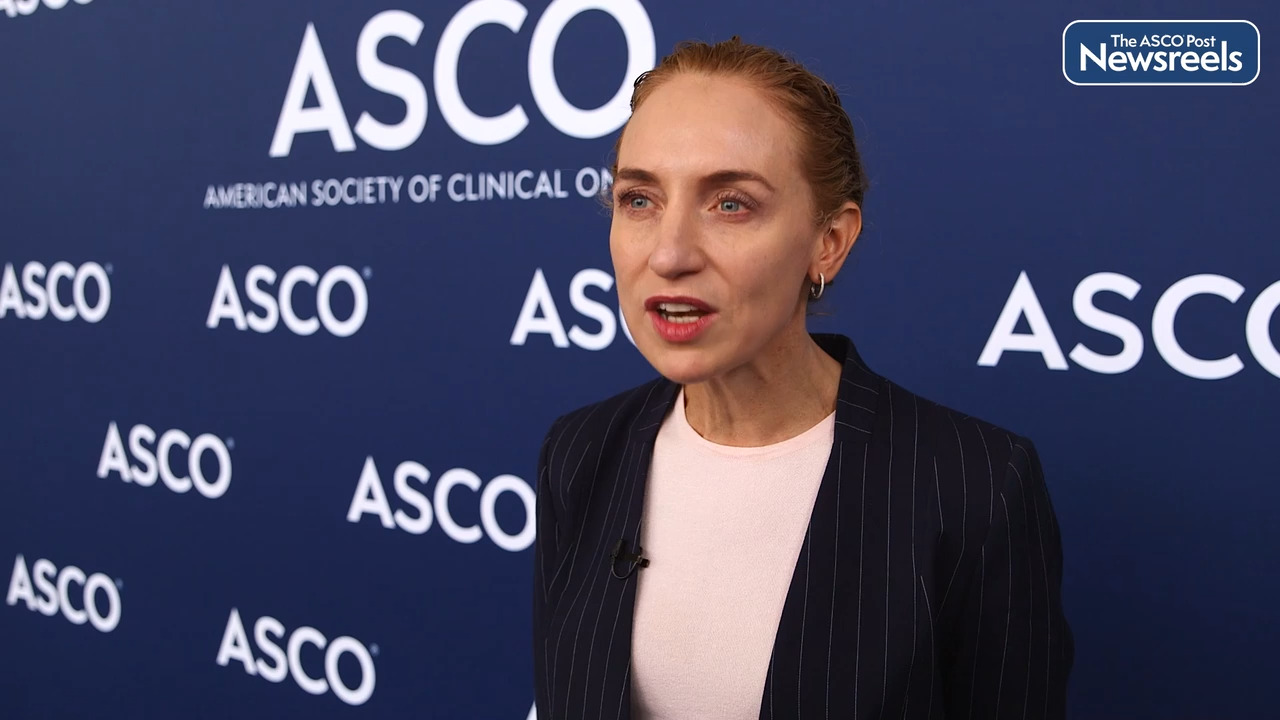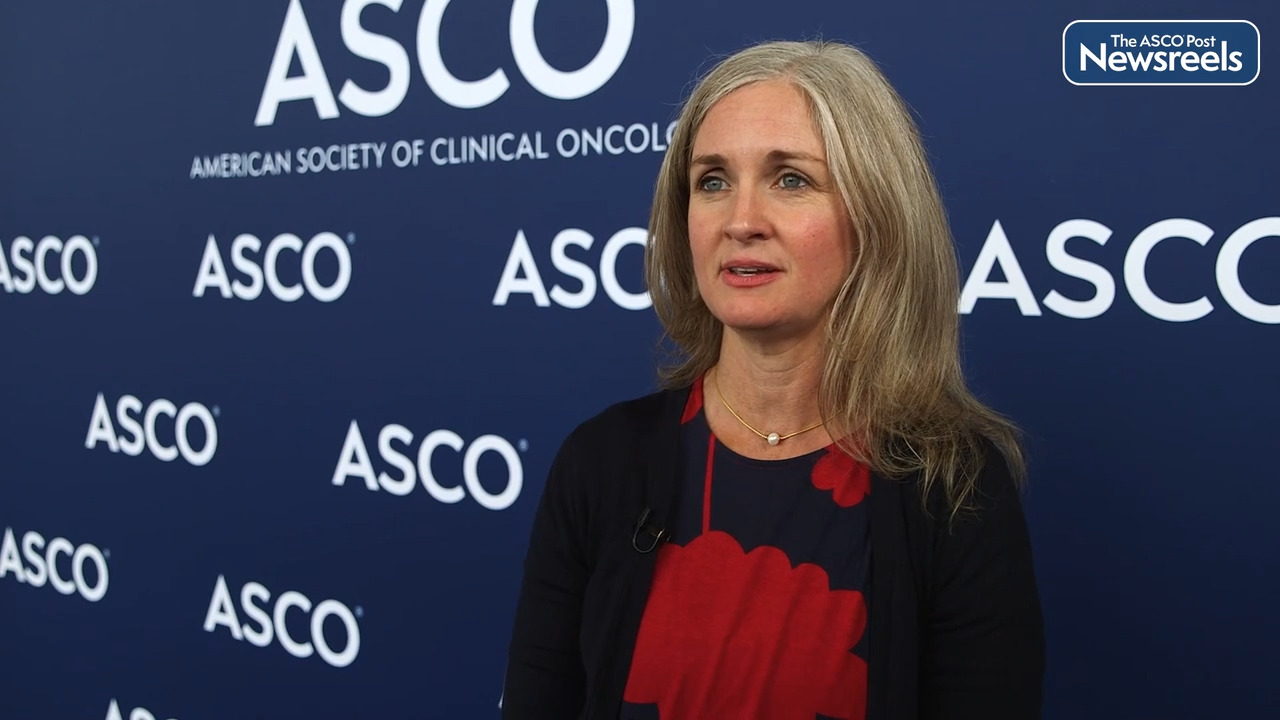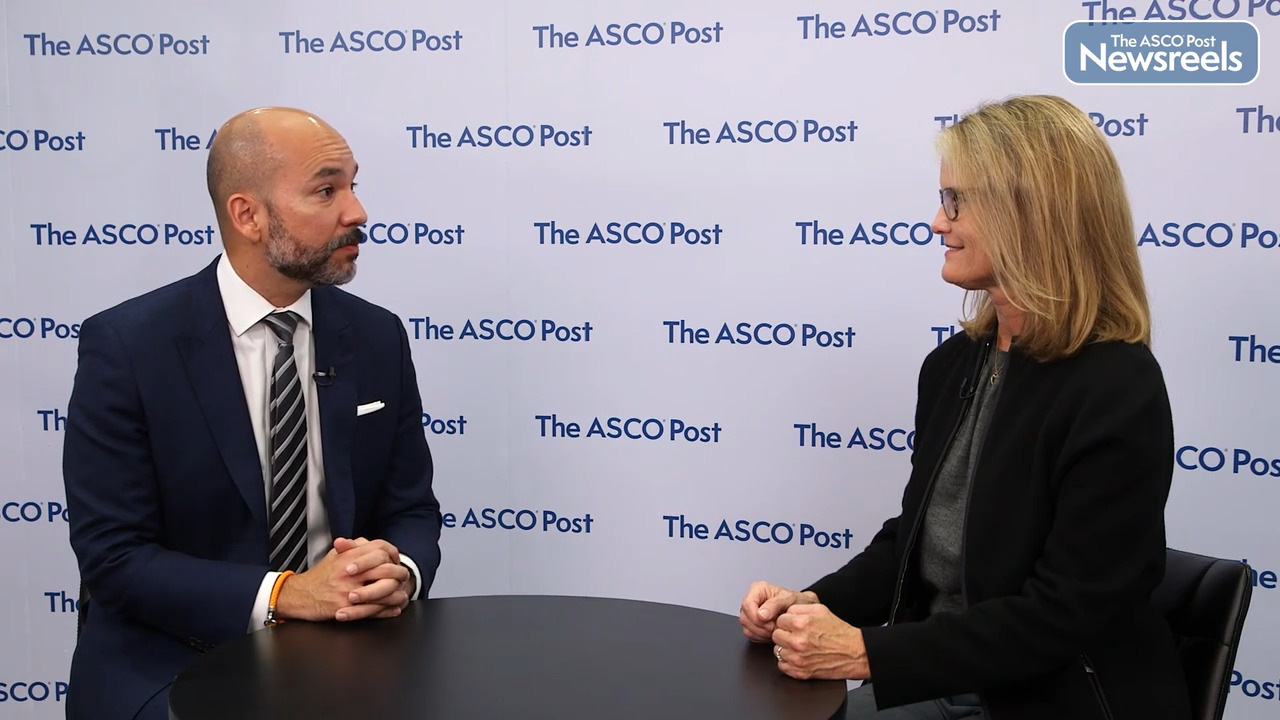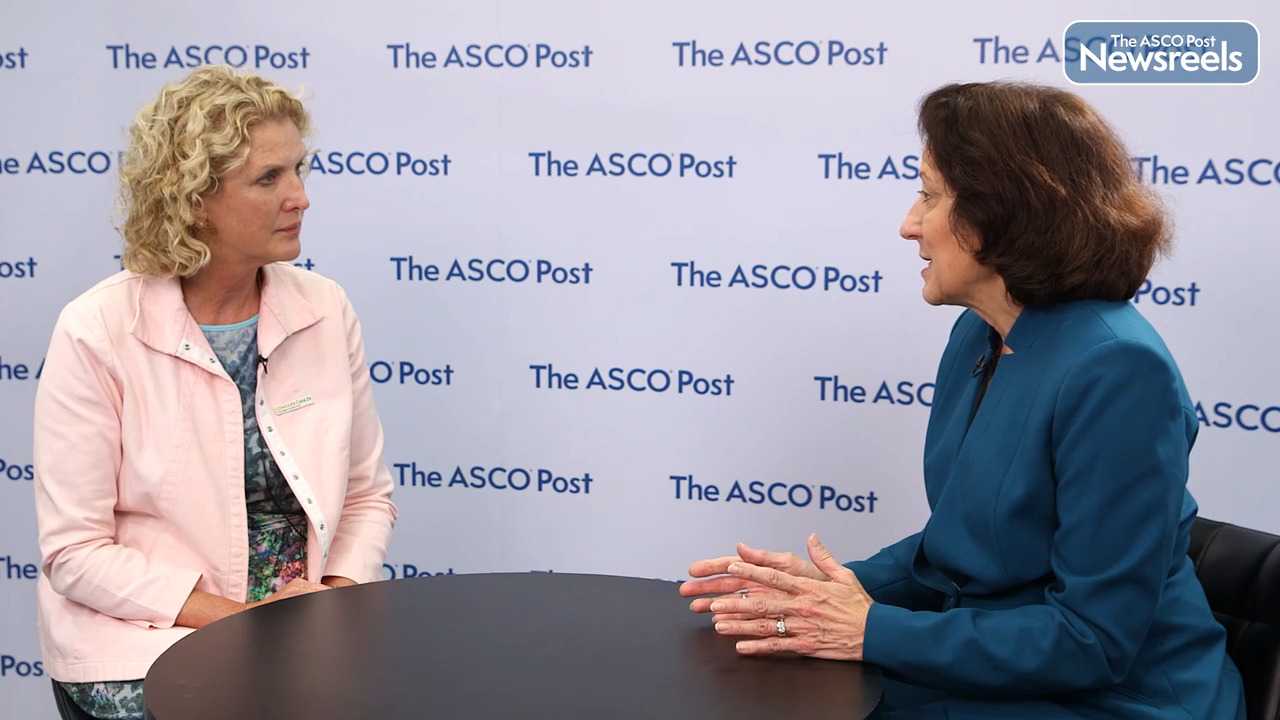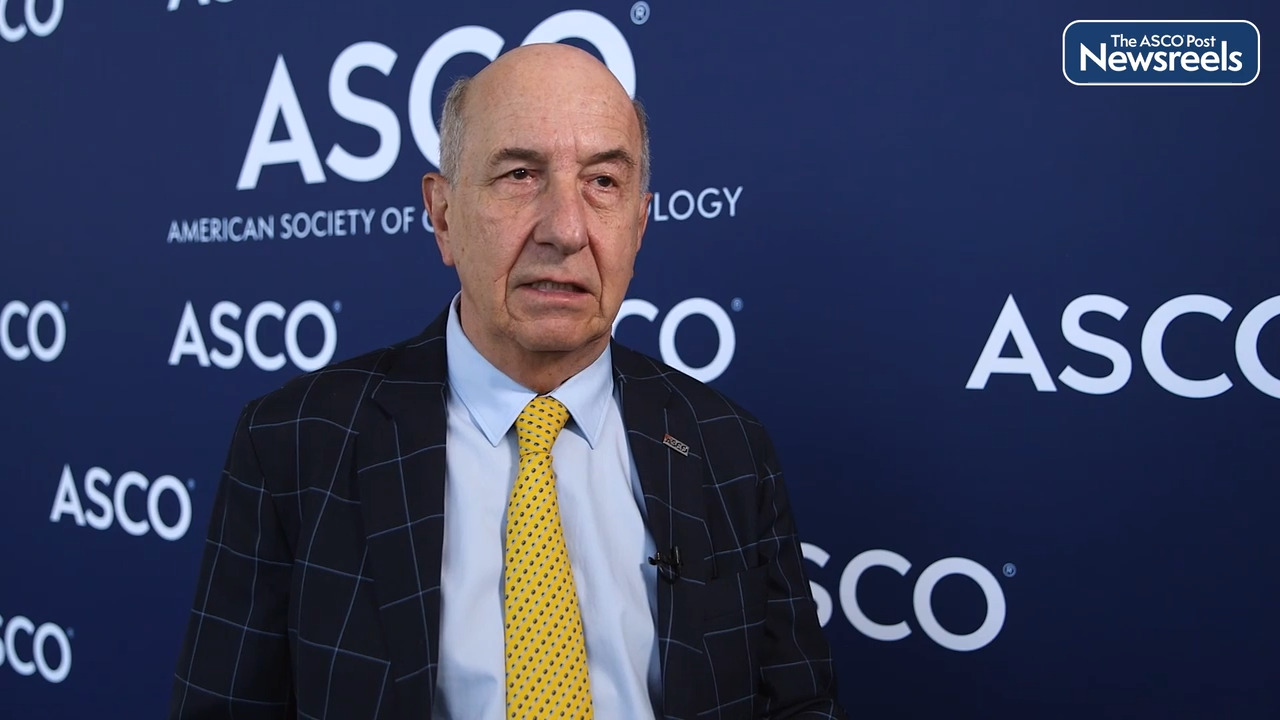Karim Chamie, MD, on Bladder Cancer: Final Results on N-803 and Bacillus Calmette-Guérin
2022 ASCO Annual Meeting
Karim Chamie, MD, of the University of California, Los Angeles, discusses final clinical results on combining the superagonist N-803 with bacillus Calmette-Guérin (BCG) in patients whose carcinoma in situ and high-grade non–muscle-invasive bladder cancers are unresponsive to BCG alone. Of note, cystectomy was avoided in more than 90% of patients with 2 years of follow-up (Abstract 4508).
Transcript
Disclaimer: This video transcript has not been proofread or edited and may contain errors.
So, patients with high-grade BCG unresponsive bladder cancer have limited treatment options. They often are offered either a radical cystectomy, which is a life altering operation which involves removal of the entire bladder and the surrounding organs, or treatments with systemic immunotherapies, such as pembrolizumab. With the QUILT-3032 study, what we did was we utilized intravesical IL-15 super-agonists in combination with BCG for patients with BCG-unresponsive bladder cancer. It's a phase two, phase three single arm study in which we enrolled 84 patients with CIS, plus or minus papillary disease, and an additional 77 patients with papillary disease only. Patients received 50 mg of BCG plus 400 mcg of N-803. This was done intravascularly once a week for six weeks, followed by three weekly treatments, similar to SWAG protocols. Our primary endpoint was safety and efficacy. Specifically, as far as efficacy, it was complete response rate at any time, and durability, which meant watching patients respond to therapy and median duration. What we found was that 71% of patients with carcinoma in situ responded at any time, and the median duration of that response was 26.2 months. Which is a phenomenal finding, because patients now have the option of being able to have intravesical therapy and maintaining their bladder for at least two years in this cohort. This compares favorably to checkpoint inhibitors, such as pembrolizumab, where they found 41% of patients had a complete response rate at any time, and the median duration of that response was about a year. The BLA for this treatment, namely N-803 plus BCG, was submitted and we hope to attain approval of this vitally important drug for this critically unmet need and frail cohort of patients.
Related Videos
The ASCO Post Staff
Georgina V. Long, MD, PhD, of the Melanoma Institute Australia, The University of Sydney, discusses findings from the NeoTrio trial on neoadjuvant pembrolizumab alone, in sequence with, or concurrent with dabrafenib plus trametinib in patients with resectable BRAF-mutant stage III melanoma. The study may help clinicians determine the optimal combination of therapy (Abstract 9503).
The ASCO Post Staff
Tara B. Sanft, MD, of Yale University, discusses the results of the LEANer study (Lifestyle, Exercise, and Nutrition Early After Diagnosis) in women with breast cancer. It showed that patients with newly diagnosed disease who were just starting chemotherapy could improve physical activity and diet quality. While both groups had high rates of treatment completion, women in the intervention who exercised at or above the recommended levels did better in terms of treatment completion, with fewer dose reductions and delays (Abstract 12007).
The ASCO Post Staff
Gilberto de Lima Lopes, Jr, MD, MBA, of the Sylvester Comprehensive Cancer Center at the University of Miami, and Karen L. Reckamp, MD, of Cedars-Sinai Medical Center, discuss phase II findings from substudy S1800A of the Lung-MAP protocol. The data showed that ramucirumab and pembrolizumab improved overall survival compared with the standard of care for patients with advanced non–small cell lung cancer who were previously treated with immunotherapy and platinum-based chemotherapy (Abstract 9004).
Lisa A. Carey, MD, of the University of North Carolina Lineberger Comprehensive Cancer Center, and Hope S. Rugo, MD, of the University of California, San Francisco, Helen Diller Family Comprehensive Cancer Center, discuss phase III results from the TROPiCS-02 trial. This study showed that sacituzumab govitecan-hziy was more beneficial than single-agent chemotherapy in terms of progression-free survival in heavily pretreated patients with hormone receptor–positive/HER2-negative and unresectable advanced breast cancer (LBA1001).
The ASCO Post Staff
Alfredo Carrato, MD, PhD, of Alcala de Henares University in Spain, discusses phase II results from the SEQUENCE trial, which showed that nab-paclitaxel, gemcitabine, and modified FOLFOX showed significantly higher clinical activity than the standard nab-paclitaxel and gemcitabine in the first-line setting of patients with untreated metastatic pancreatic ductal adenocarcinoma (Abstract 4022).
